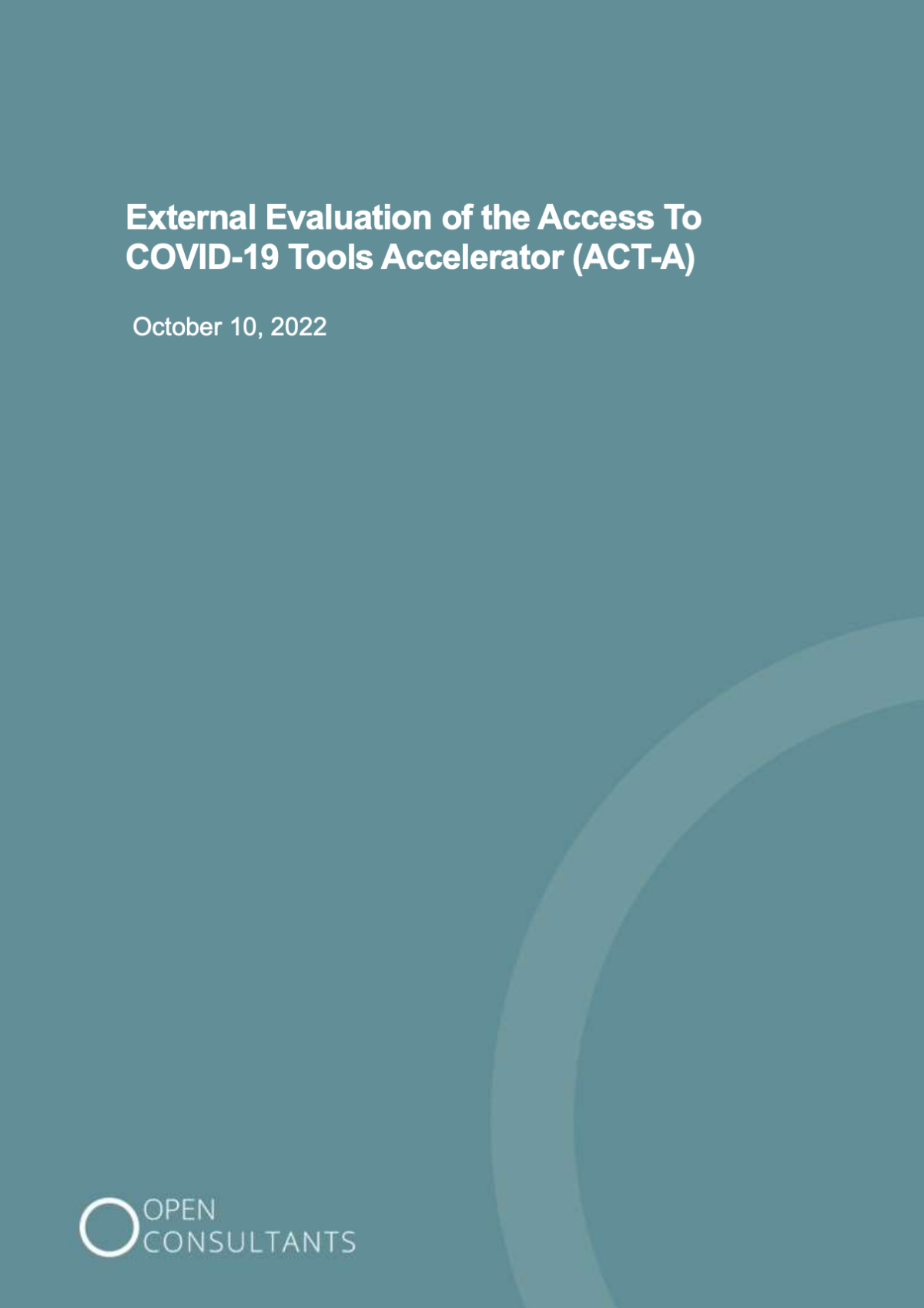The Access to COVID-19 Tools Accelerator (ACT-A) was launched in April 2020 to enable an effective and equitable global response to the COVID-19 pandemic. It was established at a time of urgency and uncertainty – less than three months after WHO determined that the outbreak of the 2019 novel coronavirus (2019-nCoV) was a Public Health Emergency of International Concern (30 January 2020).
ACT-A was the first global initiative of its kind, responding to the need for unprecedented global collaboration to respond to the COVID-19 pandemic. ACT-A’s original aim was to “develop essential health products for the fight against COVID-19 and to ensure they are distributed equitably through a rapid and ambitious programme of work to develop, test, bring to market, procure and distribute new diagnostics, drugs and technologies, while taking steps to help ensure health systems can deliver these tools to the people who need them.”
In September 2020, the ACT-A Facilitation Council (FC) was established to provide high-level advice, guidance, and leadership to facilitate the work of ACT-A. In July 2022, the FC co-chairs – Norway and South Africa – commissioned an independent, external evaluation of ACT-A and invited six other countries and four civil society representatives to join the ACT-A External Evaluation Reference Group to oversee the evaluation.
This external evaluation was a rapid, forward-looking exercise, carried out between 11 July and 10 October 2022. Its main objective was to learn from ACT-A experiences and to identify key lessons learnt for future pandemic preparedness and response. More specifically, the evaluation aimed to provide learnings for institutional solutions to enhance global equitable access to medical countermeasures (MCMs) in the future.
Please note: This report was updated on 25 October 2022 with a new preface and some factual inaccuracies corrected.
ACT-A Comments
Addendum to the full report on the External Evaluation of the ACT-Accelerator, comprising comments from the ACT-Accelerator agencies and partners in response to the evaluation.
Documents
